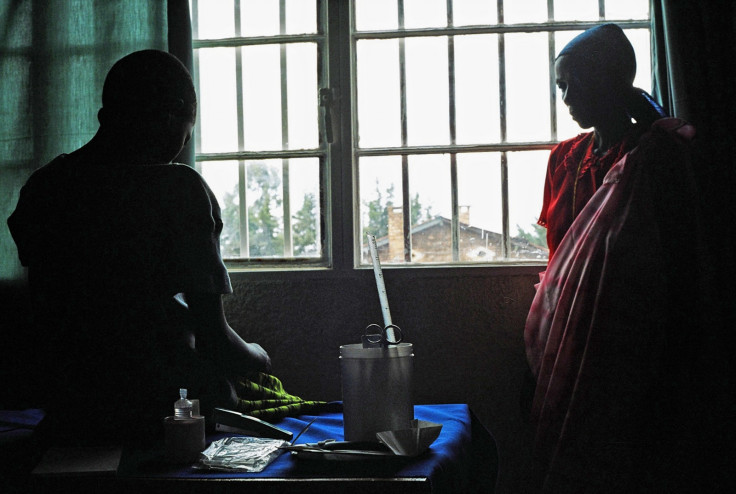3,000 children raped in Burundi as specialised centres for victims face critical lack of funding
Burundi's 18-month social and political crisis has directly impacted funding for centres for rape victims.

A Burundian charity has raised the alarm bells over a critical lack of funding for specialist centres for rape victims as it emerged that at least 3,000 children have been raped in the conflict-ridden country since 2014.
In the aftermath of its 1993-2005 civil war that left some 300,000 dead, Burundi had one of the highest incidences of rape in the world. In response to rape and war-related sexual violence, international organisations such as Médecins sans Frontières (MSF) and donors including the European Union helped set up health centres for women and children in the small East African nation.
One such centre, Seruka, which opened in the capital Bujumbura in 2004 under the wing of MSF Belgium, found that at least 700 children have been raped in Burundi since the beginning of this year, 800 in 2015 and more than 1,000 in 2014.
Joselyne Kwizera, coordinator of the centre, told news website IWACU the majority of the victims identified were from some of the poorer areas and outlying districts of Bujumbura – including Kamenge, Cibitoke, Kanyosha and Musaga.
According to MSF, previous success in addressing sexual and gender-based violence in post-war Burundi's centres lay in the fact that all services, medical, psycho-social and legal, were accessible to patients through the same facility.
But, Burundi has been gripped by a deadly social and political crisis for the past 18 months which has left an estimated 1,000 dead, 6,000 imprisoned and 20,000 missing, and security and diplomatic implications have directly impacted funding for centres such as Seruka.
Once financed by several European nations including Belgium and the Netherlands, funding for its programmes was not renewed. The European Union, which also helped fund the centre, suspended all financial support to Burundi in March this year.
With impunity marking life in today's Burundi in particular with regards to sexual violence, Kwizera warns that, since the beginning of the crisis, victims are not receiving adequate treatment and support because of lack of finances. Because of widespread insecurity, the staff from the centre no longer travel across the country to raise awareness about sexual violence.
"The Seruka centre faces a serious financial problem," the coordinator explained, highlighting how she has had to dismiss six nurses. Describing how Seruka is struggling to achieve its goal of providing emergency care, Kwizera said: "Sometimes, due to this lack of resources, victims are [only] treated after 72 hours, a duration beyond which prevention is no longer effective. They are victimised twice."
Impunity and corruption encourage rape
Estella Iyakaduhaye, a psychotherapist at the centre, said delaying treatment and support for child victims of sexual violence is "dangerous for the physical and mental health of the child because the victim of a rape needs urgent care".
Similar centres, including the Family and Community Development Centre (CDFC) in Cibitoke Province, which deals with victims of gender-based sexual violence (SGBV), face the same problems. Richard Nkurunziza, the centre's deputy coordinator, confirmed the CFDC has almost no funding. "We're doing as well as we can," he said, adding that fewer personnel is available to welcome, listen and support the growing number of victims.
The majority of these victims, from families with modest or no means, are unable to afford medical expertise and healthcare, which Nkurunziza estimates at around FBU12,000 (£5.7, $7.2) per expertise.
With the state recently banning a prominent human rights organisation and several other non-profit groups, a lack of legal support compounded by the absence of lawyers for legal aid and payment of legal fees means growing difficulties to prosecute and pursue perpetrators. "We are faced with a sector that really lacks financial resources. Cases of corruption, impunity and out-of-court arrangements encourage further rape," Nkurunziza explained.
Local journalists have described the use of rape as "a weapon of war", something that Pamella Mubeza, a women's rights activist and director of the Association des Mamans Célibataires (Association of Single Mothers – AMC) in Burundi, previously confirmed. Since the beginning of the crisis in April 2015, Human Rights Watch found that "hundreds of people have been viciously tortured, killed, raped or disappeared" in Burundi.
© Copyright IBTimes 2025. All rights reserved.






















